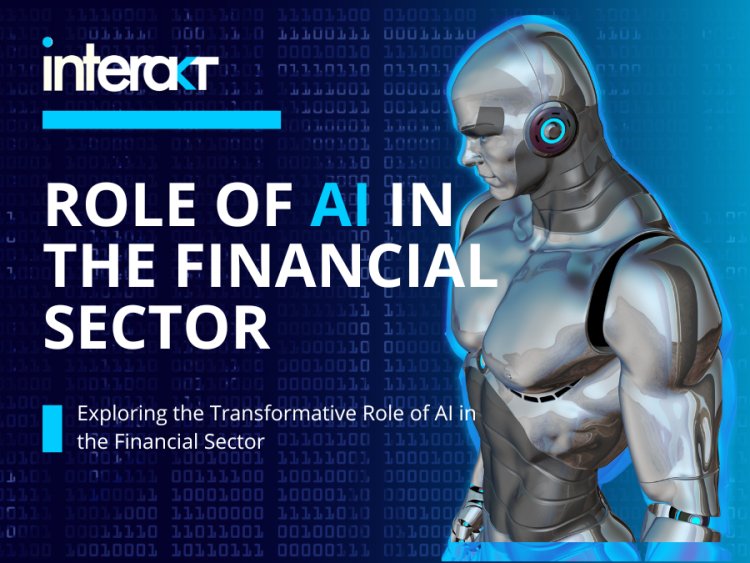Exploring the Transformative Role of AI in the Financial Sector
This blog explores the transformative role of artificial intelligence (AI) in the financial sector. AI has revolutionized various aspects of finance, including customer service, operational efficiency, security, and data-driven decision-making. The blog highlights the benefits of AI in cost reduction, streamlined processes, enhanced security measures, and leveraging data for strategic insights. With the global AI market reaching significant figures and the fintech market projected for substantial growth, embracing AI becomes crucial for financial institutions to stay competitive and deliver exceptional customer experiences.

Cutting-edge technologies have revolutionized the financial sector, and one of the most significant advancements is the deployment of artificial intelligence (AI) algorithms. AI has become a game changer, transforming the financial industry in numerous ways. In this blog post, we will explore four prominent ways in which AI impacts the financial industry, revolutionizing customer service, optimizing workloads, enhancing security, and enabling data-driven decision-making.
AI brings numerous benefits to the table, including cost reduction, streamlined financial management, and increased earnings for businesses and individuals. Its impact on the global AI market has been remarkable, surpassing $62 billion in 2020, and is projected to grow by over 40% annually. Similarly, the AI market within fintech is also promising, with a value of $8 billion in 2021 and an expected growth of over $27 billion by 2026.
AI's impact on the financial industry is profound, and it presents numerous advantages for financial organizations. Let's explore some of the key ways AI influences finance:
- Elevating Customer Service to New Heights: In the highly competitive financial market, providing exceptional customer service is crucial for success. AI plays a pivotal role in delivering personalized and customer-centric financial services. With AI-powered tools, financial institutions can offer convenient and tailored experiences to their customers. Chatbots and virtual assistants powered by AI technology can handle customer inquiries, provide real-time support, and offer personalized recommendations, ensuring customer satisfaction and loyalty.
- Streamlining Operations and Driving Cost Efficiency: AI has the potential to streamline and optimize various financial processes, leading to cost reduction and improved efficiency. By automating manual and repetitive tasks, AI eliminates the need for human intervention in mundane activities such as data entry, transaction processing, and risk assessment. This enables companies to allocate their human resources to more strategic and complex tasks that require critical thinking and decision-making abilities. As a result, operational costs are reduced, accuracy is increased, and overall productivity is enhanced.
- Fortifying Security and Fraud Detection: In an era of increasing cyber threats and evolving fraud tactics, financial institutions must prioritize security. AI-based fraud detection systems provide a powerful defense against fraudulent activities. By analyzing vast amounts of data and leveraging machine learning algorithms, AI can identify patterns and anomalies that indicate potential fraud. This proactive approach enables financial institutions to detect and prevent fraudulent transactions in real time, safeguarding sensitive financial data and ensuring the security of customer accounts.
- Unleashing the Power of Data-driven Decision-Making: Data is the lifeblood of the financial industry, and AI empowers organizations to harness the full potential of their data. With AI's ability to process and analyze large volumes of data quickly and accurately, financial institutions gain valuable insights into market trends, customer behavior, and risk factors. This data-driven approach enables them to make informed decisions, develop effective strategies, and optimize their operations. From portfolio management to credit risk assessment, AI-driven analytics provides a comprehensive view of business aspects, allowing organizations to stay ahead in the rapidly evolving financial landscape.
AI has brought unprecedented advancements to the financial industry, transforming customer service, optimizing workloads, enhancing security, and enabling data-driven decision-making. As the demand for AI continues to grow, financial institutions that embrace this technology gain a competitive edge by improving customer experiences, reducing costs, fortifying security measures, and leveraging data for strategic decision-making. The future of fintech lies in the integration of AI, driving innovation and shaping the way financial services are delivered and managed.












